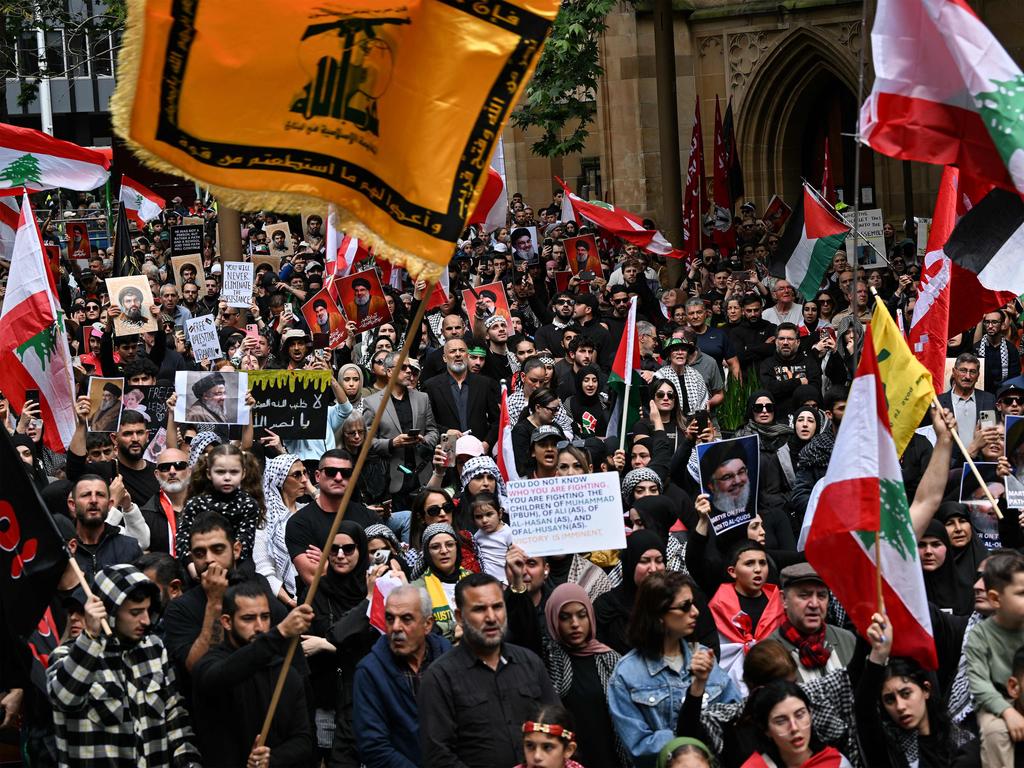
For almost 12 months now, Anthony Albanese has been urged to discharge his primary duty as Prime Minister to protect all Australian people by enforcing our laws against hate, violence and the support of terrorist organisations, both directly using federal powers and by demanding his state counterparts take similar action.
Beyond a few platitudes and some tokenistic gestures, these urgings have fallen on deaf ears.
Almost every day evidence accumulates that the federal government under Albanese struggles to understand what has been central to the concept of good government of a civilised society for millennia. In the third century BC, philosopher and polymath Aristotle opined: “At his best, man is the noblest of all animals; separated from law and justice he is the worst.”
The rule of law is the basis of all true democracies. Without the rule of law, we do not have:
• free and fair elections;
• government by and for the people;
• public order, and;
• fair dealing between the state and its citizens, and between citizens.
That is, everything we have hitherto associated with a properly run Australia, including under previous Labor governments, depends upon the rule of law. It is what has made Australia one of the most attractive places on Earth.
Yet Albanese has shown consistent contempt for the rule of law and our governing precepts, starting with his cynical approach to parliamentary democracy. He and his ministers have repeatedly refused in parliament to answer the opposition’s questions.
Central to our system of parliamentary democracy is ministerial responsibility. A reading of the debates engaged in by our forefathers at the constitutional conventions leading to the creation of Australia through Federation emphasises the pivotal role ministerial responsibility was to play in the operation of the national executive government, in particular the authority of the national parliament over ministers, by expecting them to operate consistently with the Constitution, by questioning them upon their policies, by censuring them for their misdeeds and ultimately by dismissing them from office.
How can this pivotal role be fulfilled in upholding this fundamental premise of Australian democracy if neither the parliament nor the people, through their elected representatives, hold ministers to account through questions in parliament?
This contempt is also manifest in the abject failure of the Albanese government and its Labor counterparts in NSW and Victoria to counter the increasingly violent and out-of-control Gaza conflict protests for almost 12 months, leading Australia down a dangerous and unprecedented path.
There are grave consequences, now being realised, flowing from this failure to uphold the law. By not deterring unlawful behaviour through charge and prosecution, you effectively sanction and embolden law-breaking and breed contempt for the laws you do not enforce.
This is even more critical during a period of high immigration (more than 1.2 million in two years), when many immigrants have little or no previous exposure to the norms of a free democratic society, with some coming from lawless or terrorist-sympathising countries. How do they know the boundaries if those boundaries are not enforced?
We are now witnessing these protests move beyond an attack on the Jewish community and mutate into a wider attack on Australian democracy.
Although transparency is lacking on government and police responses, we do know at least 12 electorate offices – both federal and state – in Melbourne alone have been attacked and vandalised, with some blockaded, and at least another six in Sydney. The offices targeted include those of senior ministers as well as the Prime Minister’s own office, with some offices attacked on multiple occasions over many months.

Functioning electorate offices are central to our democracy; they are the contact point between the citizen and his/her representative, yet these attacks have continued for months with no effective or co-ordinated federal response from the Albanese government.
This is an attack on the organs of the Australian parliament and imperils the viability of Australian democracy; a national crisis, requiring a national response.
A few months ago, the protesters unequivocally crossed the line into terrorism when they firebombed the federal electorate office of Jewish MP Josh Burns in Melbourne, risking the lives of residents living above.
The elements of a terrorism offence contained in Section 100.1 of the Commonwealth Criminal Code 1995 are satisfied on the facts that have been reported. As such, it demanded a serious federal law enforcement response. However, The Australian reported that Victoria Police is “treating a spate of anti-Semitic attacks on electorate offices throughout Melbourne as individual investigations led by local cops”.
The Prime Minister again egregiously failed to act. He left the response to this and the other attacks to an uncoordinated investigation by local state police, as if all that is involved are isolated cases of wilful damage committed by unconnected persons not pursuing a national agenda.
This is a scandalous way to undertake the investigation of what is a pattern of similar offences directed at our democratic infrastructure. Investigation of a possible terrorist crime requires the full panoply of law enforcement tools available to the commonwealth government, including a well-resourced federal-state investigative taskforce with access to criminal analysts, electronic interception, surveillance and compulsory hearings under the direction of the Centre for Counter-Terrorism Coordination.
Through its dereliction, the Albanese government has stood by while the Gaza protests have morphed from isolated rallies on our university campuses and on our streets into what is fast becoming a full-blown attack on the Australian democratic process and national institutions.
The Albanese and other state governments have increasingly discarded the central role of the criminal law in providing deterrence, denunciation of anti-social behaviour and the protection of the community. The failure to enforce the rule of law is leading to a breakdown of social norms and rising level of lawlessness afflicting many communities across Australia.
The law is not to be sacrificed on the altar of electoral success in parts of Sydney and Melbourne. In any event, to think this way is deeply insulting to the Muslim community. The Muslim community is not monolithic and all Muslims do not want lawless streets.
It is well past the time for the Prime Minister to do his duty and take condign action on behalf of all Australians to enforce our laws, otherwise there is a growing risk that this street violence will spiral out of control.
Mark Le Grand is a former deputy commonwealth DPP.





The protests on the streets of Sydney and Melbourne openly supporting listed Islamist terrorists and terror organisations portend increasingly violent unrest across Australia. It is the latest in a pattern of such protests over the past 12 months. This crisis was not inevitable.